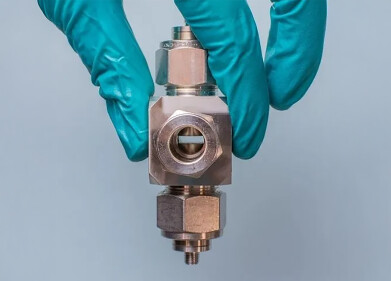Analytical Instrumentation
Can 3D Printing Help Oil and Gas Companies?
Dec 18 2020
The oil and gas industry is continually leveraging new technologies, with 3D printing emerging as the latest trend. Over the coming years the concept is set to reshape the energy industry and usher in a new era of efficiency, productivity and profitability.
Also known as additive manufacturing, 3D printing has proven incredibly useful during the COVID-19 pandemic, with companies using it to fast-track the production of PPE. Now, oil and gas companies are using 3D printing to manufacture parts and equipment that have not been delivered due to COVID-19 shipping delays. As well as increasing productivity, 3D printing has also allowed energy companies to reduce reliance on third-party companies and become more independent.
Building digital inventories
To embrace additive manufacturing as a long-term production solutions, oil and gas companies must first invest in the creation of digital inventories. This involves compiling a detailed database of 3D printing instructions for each part. With a good digital inventory, a company can then print equipment on demand.
By 2025 analysts predict the 3D printing industry will be worth a huge US$32 billion within the oil and gas industry. Currently additive manufacturing accounts for just 0.1% of all global manufacturing within the energy sector, though this is expected to grow significantly over the coming decade. By 2030 analysts forecast the 3D printing sector could be worth up to US$60 billion.
Shell and BP early adopters of 3D printing
Global energy giant Shell has been an early adopter of additive manufacturing, using the technology to create parts across all sectors. 3D printing has allowed the company to produce specific parts that are usually labour intensive and expensive to manufacture. Not only has this streamlined the manufacturing process and allowed Shell to create parts on demand, but the opportunity to save and recycle unused metal powder has unlocked big financial savings.
BP is also on board, with the British-owned oil and gas company listing 3D printing as one of the top technologies set to shape the energy sector over the coming years. Additive manufacturing joined innovations such as artificial intelligence, alternative energy sources, blockchain and autonomous vehicles on the list.
Get up to date with the latest energy industry advances in ‘Global Collaboration and Development of the Latest Engine Oil Standards’ featuring commentary from Dr. Raj Shah, Dr. Hind Abi-Akar and Mr. Stanley Zhang and Mr. Isaac Kim on behalf of Koehler Instrument Company.
Digital Edition
PIN 25.5 Oct/Nov 2024
November 2024
Analytical Instrumentation - Picturing Viscosity – How Can a Viscometer or a Rheometer Benefit You? - Sustainable Grease Formulations: Evaluating Key Performance Parameters and Testing Method...
View all digital editions
Events
Nov 27 2024 Istanbul, Turkey
Biogas Convention & Trade Fair 2024
Nov 27 2024 Hanover, Germany
Dec 03 2024 Dusseldorf, Germany
Dec 08 2024 Anaheim, CA, USA
Turkey & Black Sea Oil and Gas
Dec 11 2024 Istanbul, Turkey



















